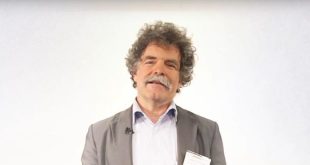The idea of using nature as inspiration to create different types of technology has always existed, but it has been formalized through a more systematic approach since the 1990s. Frédéric Boyer, a researcher at IMT Atlantique, explains how bio-inspiration can be a source of new ideas for developing technologies and concepts, especially for robotics. How long has bio-inspiration been around? …
Read More »Search Results for: environment
Miguel Lopez Ferber
IMT Mines Alès | Environmental footprint, Water footprint, Natural resources, LCA
Read More »Our indoor air is polluted, but new materials could provide solutions
Frédéric Thévenet, IMT Lille Douai – Institut Mines-Télécom We spend 80% of our lives in enclosed spaces, whether at home, at work or in transit. We are therefore very exposed to this air, which is often more polluted than outdoor air. The issue of health in indoor environments is thus associated with chronic exposure to pollutants and to volatile organic …
Read More »IMPETUS: towards improved urban safety and security
How can traffic and public transport be managed more effectively in a city, while controlling pollution, ensuring the safety of users and at the same time, taking into account ethical issues related to the use of data and mechanisms to ensure its protection? This is the challenge facing IMPETUS, a €9.3 million project receiving funding of €7.9 million from the …
Read More »Three Mile Island, Chernobyl, Fukushima: the role of accidents in nuclear governance
Stéphanie Tillement, IMT Atlantique – Institut Mines-Télécom and Olivier Borraz, Sciences Po Until the 1970s, nuclear power plants were considered to be inherently safe, by design. Accidents were perceived as being highly unlikely, if not impossible, by designers and operators, in spite of recurring incidents that were not publicized. This changed abruptly in 1979 with the Three Mile Island (TMI) accident in the United …
Read More »Decision support tools for maritime accident management
The European MANIFESTS project, launched in January, is a two-year project bringing together a consortium of nine research institutions and public administrations with complementary expertise in managing maritime accidents. Funded by the European Commission, this project aims to improve responses to emergencies related to these accidents. An interview with Laurent Aprin, a researcher at IMT Mines Alès, a project partner. Could …
Read More »What is digital sufficiency?
Digital consumption doubles every 5 years. This is due in particular to the growing number of digital devices and their increased use. This consumption also has an increasing impact on the environment. Digital sufficiency refers to finding the right balance for the use of digital technology in relation to the planet and its inhabitants. Fabrice Flipo, a researcher at Institut Mines-Télécom …
Read More »What is beamforming?
Beamforming is a telecommunications technology that enables the targeted delivery of larger and faster signals. The development of 5G relies in particular on beamforming. Florian Kaltenberger, researcher at EURECOM and 5G specialist, explains how this technology works. What is beamforming? Florian Kaltenberger: Beamforming consists of transmitting synchronized waves in the form of beams, from an antenna. This makes it possible to target …
Read More »Pam Tim, Examin, Cylensee and Possible supported through honor loan program
The members of the IMT Digital Fund, IGEU, IMT and Fondation Mines-Télécom met on 6 April. On this occasion, four start-ups developed through incubators at IMT Atlantique, Télécom Paris, Télécom SudParis and Institut Mines-Télécom Business School obtained 8 honor loans for a total of €160,000. Cylensee (IMT Atlantique incubator) develops and produces connected electrochromic contact lenses for the general public. These …
Read More »Innovation in health: towards responsibility
Digital innovations are paving the way for more accurate predictive medicine and a more resilient healthcare system. In order to establish themselves on the market and reduce their potential negative effects, these technologies must be responsible. Christine Balagué, a researcher in digital ethics at Institut Mines-Télécom Business School, presents the risks associated with innovations in the health sector and ways …
Read More » I'MTech L'actualité scientifique et technologique de l'IMT
I'MTech L'actualité scientifique et technologique de l'IMT









